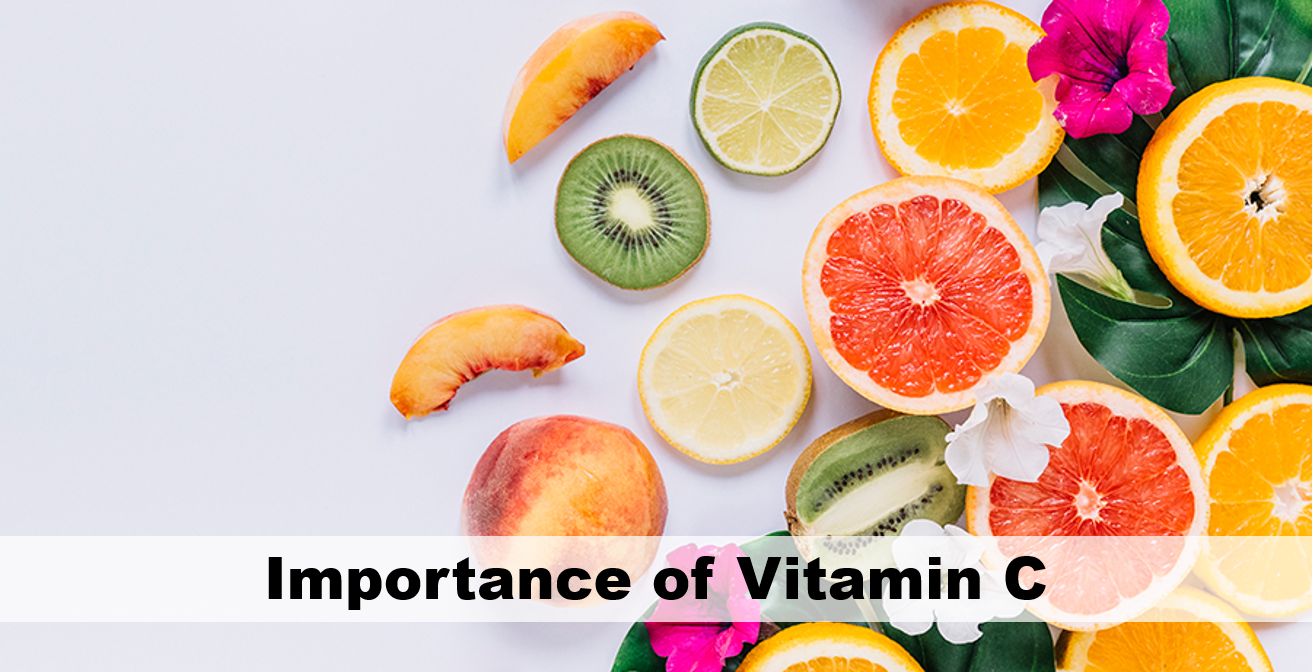Importance of Vitamin C

Importance of Vitamin C. Vitamin C is a very important vitamin. Especially its importance highly raises in winter months. Importance of vitamin C increased after the discovery of its effect against cancer. Vitamin C gains attention in urban life because of the determined effects of smoking, stress, and fatigue. Vitamin C has become popular thanks to its antioxidant properties, which are thought to protect against degeneration during aging. We can say vitamin C is the vitamin of winter months. During the winter season, lots of vegetables and fruits contain vitamin C and also our body needs more vitamin C than any other seasons.
Benefits of Vitamin C
In fact, the protective effect of vitamin C from the flu is not proven but vitamin C is known to shorten the duration of illness and reduce the severity of symptoms in people who have a cold. Vitamin C reduces the mobility of viruses entering the body and strengthens the immune system. Vitamin C provides better use of vitamins A, B, E, iron, and calcium in the body. Vitamin C strengthens the capillary structure. It reduces the risk of coronary heart disease. Vitamin C is also one of the most effective substances against cancer. Vitamin C is effective in the formation of enzymes that provide healing wounds. It protects the eyes against the sun and strong lights and preventing them from cataract formation. It helps the body cells in bones, teeth, gums, ligaments and blood vessels to grow and maintain health. Vitamin C helps to reduce body stress. Vitamin C also has a significant role in the operation of some hormones in the body. In addition to those benefits, Vitamin C also balances the cholesterol level.
How Much Vitamin C Should We Take?
Food and Nutrition Board of the National Academy of Science is reviewing current suggestions about vitamin C intake. Experts at the National Institutes of Health thinks that the recommended amount of vitamin C should be increased from 60-75 mg per day to 100-200 mg per day. Pregnant women, athletes, and people who smoke need more vitamin C intake. Vitamin C is absorbed by the small intestine at least two hours after intake. When the daily consumption is between 100 mg and 150 mg, 75 percent is absorbed by the body, and when the amount is 1000 mg, only 50 percent is absorbed. In other words, if the vitamin C intake is higher than needs, the body will throw.
What Happens If Vitamin C is Poorly Consumed?
Vitamin C deficiency leads to decreased resistance to infections, decreased appetite, delay in healing wounds, swelling, and bleeding of the gums, anemia, fatigue, swelling of the joints. The most prominent symptom of vitamin C deficiency is a scurvy disease, which is determined by fractures in the bones. In addition to those deficiencies, also many health problems such as depression, high blood pressure, arthritis, ulcers, vascular problems, allergies, and gallbladder stones are thought to be associated with Vitamin C. Vitamin C deficiency in the body shows itself as fatigue, anemia, fever, tooth and gum disease, delay in the healing of wounds.
Which Foods are Contains Vitamin C?
Rosehip is one of the most significant resources that contains Vitamin C. Whole citrus fruits, parsley, vine leaves, strawberries, tomatoes, watermelons, red bell peppers, broccoli, cauliflower, carrots, arugula, cress, onion, spinach, and cabbage are containing plenty of vitamin C.
Benefits of Vitamin D (What is Rickets?)
What Triggers Coughing? (How to Prevent )





